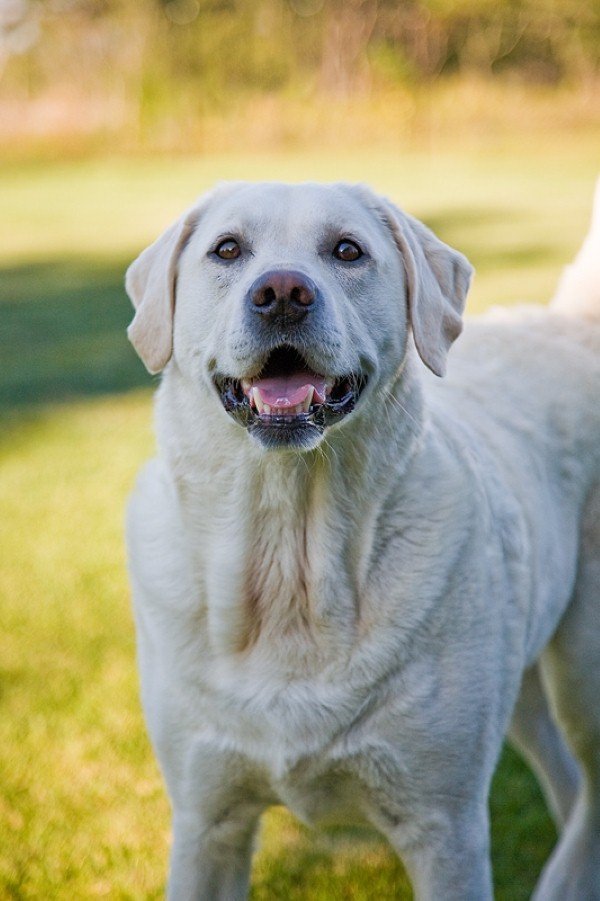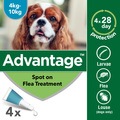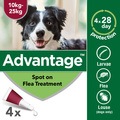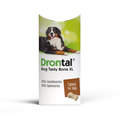
There will inevitably be times when your dog may get stressed or hyperactive, particularly if it is taken by surprise, either because the doorbell rings, or it is around new people or animals.
Hyperactivity may also have many other causes, including a lack of stimulation or sometimes even illness.
Before you are able to address the problem through training, you will need to determine whether any changes should be made to the way you are interacting with the dog.
Sometimes the breed of dog may be a big factor in how hyperactive they get, so you will also need to ensure that the training given is appropriate for the type of dog that you have.
Follow our top training tips below to get the best out of your dog:
Remain calm
If you are hyperactive or stressed, your dog will inevitably pick up those cues from you. By remaining calm and in control, you are much more likely to have a beneficial influence over your dog.
Your dog picks up on your energy, so even if it is hyperactive you should still remain cool and focussed.
Assertive
This is where many pet owners fall short. If you do not take firm control of your dog, then it will be much harder to teach it discipline.
Of course this does not mean penalising it or yelling, but it has to know that you are in charge - much like a strict parent.
The tone of your voice and using strong, audible demands will set you apart as the person that it will listen to.
If you are having trouble training your dog in the right way, or getting it to listen to you, you may want to think about enrolling it in a dog obedience class.
There are also plenty of books out there that teach you how to train a dog in the right way.
You should also have at least 15-20 minute long training sessions with your dog - preferably a few times each day.
This will make it easier for your dog to bond with you and set you apart as its leader.
Rewards
When your dog does something good, be sure to reward it for its efforts. This will help to establish good habits earlier on.
You could reward it with a biscuit or treat, along with a strong positive statement such as "good dog" or pat on the head.
This will help to encourage it to form the habits that you wish to instil in it.
Games
Lack of stimulation and boredom are the main causes of hyperactivity in a dog. Therefore, you will definitely want to ensure that it gets enough stimulation throughout the day through the use of fun games.
Games are best played outside, perhaps in a park or garden, where the dog has plenty of space to move around and play.
Ideally, you should also purchase a couple of toys for it, so that it has something to focus on and play with when it gets bored.
You could perhaps use something such as an object on the end of a stick so that it can run around and chase after it without you having to exert yourself too much.
Other great games are catch, tug-of-war and fetch. All of these are active, energetic games that will help your dog to get enough exercise.
Dog walking
All dogs need to get regular exercise, and walking is an important element of that. It is also an essential element of socialisation and gets them used to seeing other people and other dogs.
Be sure to use a loose leash when walking, although you will want a tighter one when you need more control over your dog - for example, when another dog or young child comes by.
If you notice your dog starts to get hyperactive or agitated, you should also walk him on a tighter leash.
You should also ensure that you observe any rules on dog leashes.
Walking is a great way to get your dog used to the environment around you and helps with bonding.
If you are walking in the park, it is also an opportunity to play games and let it run around.
When you are out and about, be sure to give your dog a certain amount of freedom and allow it to relax.
This makes it less likely to get agitated or hyperactive later on.
If you are unable to get out to walk your dog, you should consider hiring someone who can do that for you.
There are also many free schemes online where you can select someone to walk or look after your dog when you are away or ill.
You should always ask that person lots of questions and make enquiries about their experiences with dogs to ensure that they are the right person to look after yours.
Written by: Declan









